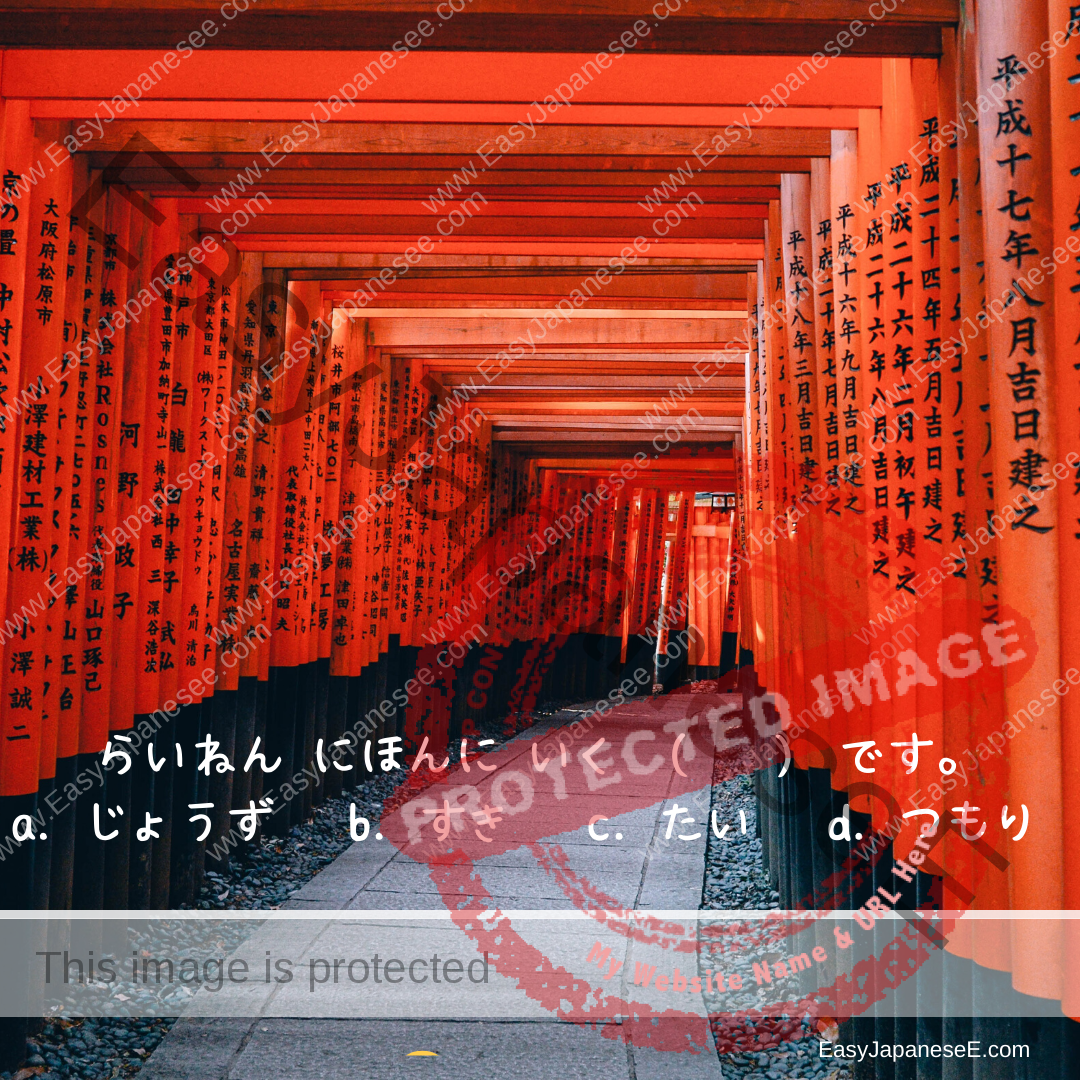らいねん にほんに いく ( ) です。
a. じょうず b. すき c. たい d. つもり
The translation should be:
I (intend) to go to Japan next year.
So the answer is d. つもり
a. じょうず means “good (at)” and b.すき means “fond (of)”, and both of them require the particle が in front of them in lieu of “at” and “of” respectively, so these two should be disregarded straight away.
You might have picked c. たい if you thought the original sentence means: “I (want) to go to Japan next year”, but たい is used with a verb stem, not with the dictionary form, so it has to be らいねん にほんに いきたい です。
つもり expresses a person’s intention if it’s used with a plain non-past verb.
らいねん にほんに いく つもりです。
= I intend to go to Japan next year.
らいねん にほんに いく つもりでした。
= I intended to go to Japan next year (but I may not…)
らいねん にほんに いかない つもりです。
= I don’t intend to go to Japan next year.
らいねん にほんに いかない つもりでした。
= I didn’t intend to go to Japan next year (but I may…)
きょうは カレーを たべる つもりだ。
= I intend to eat curry today.
きょうは カレーを たべる つもりだった。
= I intended to eat curry today (but probably I won’t).
きょうは カレーを たべない つもりだ。
= I don’t intend to eat curry today.
きょうは カレーを たべない つもりだった。
= I didn’t intend to eat curry today (but I will).
If you liked this article, please share it with your friends using the social media buttons below.
Also, your clicks on ads on this page help covering the cost of running this website. Your support will be much appreciated.


One Reply to “つもり”